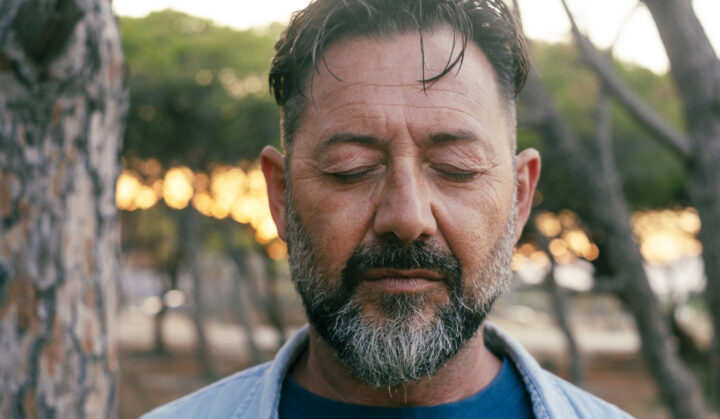Emotional intelligence is more than sensitivity—it’s knowing what you’re feeling, recognising how it affects other people, and handling both with maturity.

Also, self-awareness means you’re honest about your own flaws, patterns, and strengths without needing to perform perfection. Men who carry both of these traits tend to behave differently in quiet, consistent ways. It’s not overwhelming or showy, but it’s felt. Here are just some of the habits you’ll often see in men who’ve done the emotional work and genuinely get it.
1. They don’t just react—they think first.

Emotionally intelligent men know the power of a pause. Instead of lashing out, shutting down, or instantly snapping back, they take a breath and consider how they want to respond. This habit prevents a lot of unnecessary damage, especially in tense conversations. That break doesn’t mean they’re cold—it means they’re grounded. They’ve learned that not every emotion needs to be acted on immediately, and sometimes silence is smarter than speaking too soon.
2. They take responsibility for their moods.

They don’t blame other people for a bad day or dump their frustrations onto whoever’s nearest. If they’re off, they’ll say so. They won’t leave you guessing or walking on eggshells. That kind of honesty shows emotional maturity. It means they’ve clocked that it’s their job to manage their emotional state, not yours.
3. They apologise without getting defensive.

Instead of rushing to explain why they did what they did or turning it into a debate, they just say sorry—and mean it. A proper apology is direct, clean, and doesn’t come with conditions or counterattacks. Men with emotional intelligence understand that apologising isn’t about losing power. It’s about restoring trust, and they know how valuable that is.
4. They set boundaries without guilt.

They can say no without needing a big excuse. They can express when they’re tired, overwhelmed, or just need space—without spiralling into guilt or over-explaining. That kind of boundary-setting isn’t harsh. It’s respectful. And it creates healthier dynamics with everyone around them, from family to friends to partners.
5. They genuinely listen.

They’re not just waiting for their turn to talk. They’re tuned in—watching your body language, noticing your tone, and hearing what you’re really saying beneath the surface. Being heard by someone like this feels different. You walk away feeling understood, not just nodded at. It’s a rare kind of attentiveness that builds real connection.
6. They reflect on their patterns.

If something goes wrong in a relationship, they don’t just blame the other person and move on. They actually think about what role they played and what they might need to change going forward. That level of self-reflection keeps them growing. It means they’re not just repeating the same behaviours and calling it bad luck.
7. They stay calm when other people aren’t.

In stressful or emotionally charged moments, they don’t match the chaos. Instead, they often become the grounding presence—steady, clear-headed, and calm without being dismissive. That doesn’t mean they’re emotionally shut off. It means they’ve got the tools to self-regulate and help other people feel safer in the process.
8. They ask questions instead of making assumptions.

If they sense tension, they don’t jump straight to conclusions or accusations. They check in. “Is something bothering you?” or “Did I do something that upset you?” is more their style. This approach creates space for honest dialogue, rather than pushing people into defensiveness. It shows they value clarity over control.
9. They can sit with discomfort.
 Source: Unsplash
Source: Unsplash They don’t need every conversation to be smooth or every moment to feel good. Whether it’s grief, conflict, awkwardness, or vulnerability—they don’t rush to escape or fix it all immediately. That ability to tolerate discomfort without shutting down or acting out is one of the clearest signs of emotional depth. It means they’re present, even when it’s hard.
10. They give compliments without strings.

They notice things—how hard you’ve been working, the way your eyes light up when you talk about something you love—and they say it. Not to get anything back. Just because it’s true. These compliments land differently because they’re not loaded. They’re genuine, timely, and freely given. That’s emotional generosity in action.
11. They don’t make jokes at people’s expense.

They’re not the type to mask digs as banter or use sarcasm to tear people down. Their humour isn’t rooted in power or superiority—it’s inclusive, thoughtful, and kind. They’ve learned that making someone feel small to get a laugh might get attention, but it doesn’t build connection. They’re in it for the connection, not the ego boost.
12. They welcome feedback (and actually take it on board).
 Source: Unsplash
Source: Unsplash It might sting sometimes, but they don’t shut down or lash out when someone points out something they could do better. They listen, think about it, and often follow up with a change in behaviour. This openness makes people feel safe around them—because you know you can be honest without being punished for it.
13. They show emotion without shame.

Tears, frustration, disappointment, joy—they let themselves feel it all, and they don’t see any of it as weakness. If something moves them, they don’t hide it behind a wall of indifference. Emotional intelligence means knowing that expressing feelings isn’t unmanly—it’s real. And it often gives other people permission to be more open too.
14. They don’t need to dominate to feel secure.

They’re not in relationships or friendships to win, control, or one-up anyone. Their confidence comes from within, not from being in charge of everyone else. Because they’re secure in themselves, they can celebrate other people without shrinking. That kind of quiet strength tends to speak for itself.




